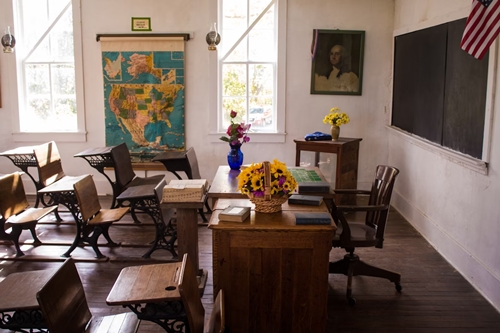Part 3 — They Were at My Graduation Last Year
It started with one name not called at roll.
Then another. And another.
In a middle school in Arkansas, two desks remained empty after spring break. Their lockers stayed full. Binders, shoes, a hoodie still on the hook. The silence grew so loud that classmates stopped asking where they went. “Everyone sort of knew,” said Ava, age twelve. “But no one talked about it.”
At a high school in Arizona, a student gave his valedictorian speech with two seats reserved in the front row—one for his mother, who was taken during a traffic stop, and another for his best friend, who had gone missing after an ICE raid the month before.
And in a charter school in upstate New York, the choir fell out of harmony. Three altos had left. The teacher sat with a trembling jaw and blank attendance sheet. “They were at my graduation last year,” she said. “And now they’re just gone.”
This is what happens when deportation policies collide with school hallways.
It doesn’t make the headlines, but the loss runs deep. Students lose classmates. Teachers lose families they’ve nurtured for years. Counselors burn out trying to soothe children who don’t know what happened—and often, aren’t told.
Sometimes, the students affected are U.S. citizens themselves. One middle-schooler in Texas now walks to school alone, her father gone. She draws him into every writing prompt, always flying a kite. Her teacher helps her pack breakfast for dinner.
And then there’s the silence that settles into cafeterias and classrooms: where trauma doesn’t shout, it hunches, scribbles, forgets to raise its hand.
But in the middle of these absences, something extraordinary persists.
A school nurse stockpiles glucose supplies for a diabetic student now in foster care. A math teacher livestreams lessons for a deported parent trying to help with homework from a border town. A school board rewrites its visitor policy to require a warrant before ICE can set foot on campus. One principal leaves an empty chair at every assembly, “in case someone finds their way home.”
Because education, at its core, isn’t just about grades. It’s about belonging.
And when the classroom is missing someone, we all have a role to play: in remembering, in protecting, in rebuilding trust when the system fails.
Coming Next: “The Lawful, the Vulnerable, and the Vanished
They weren’t hiding. They weren’t undocumented. They followed the rules until the rules disappeared beneath them. In Part 4, we meet those who played by the book and vanished anyway and the quiet resistance that rises when obedience fails to keep families safe.
